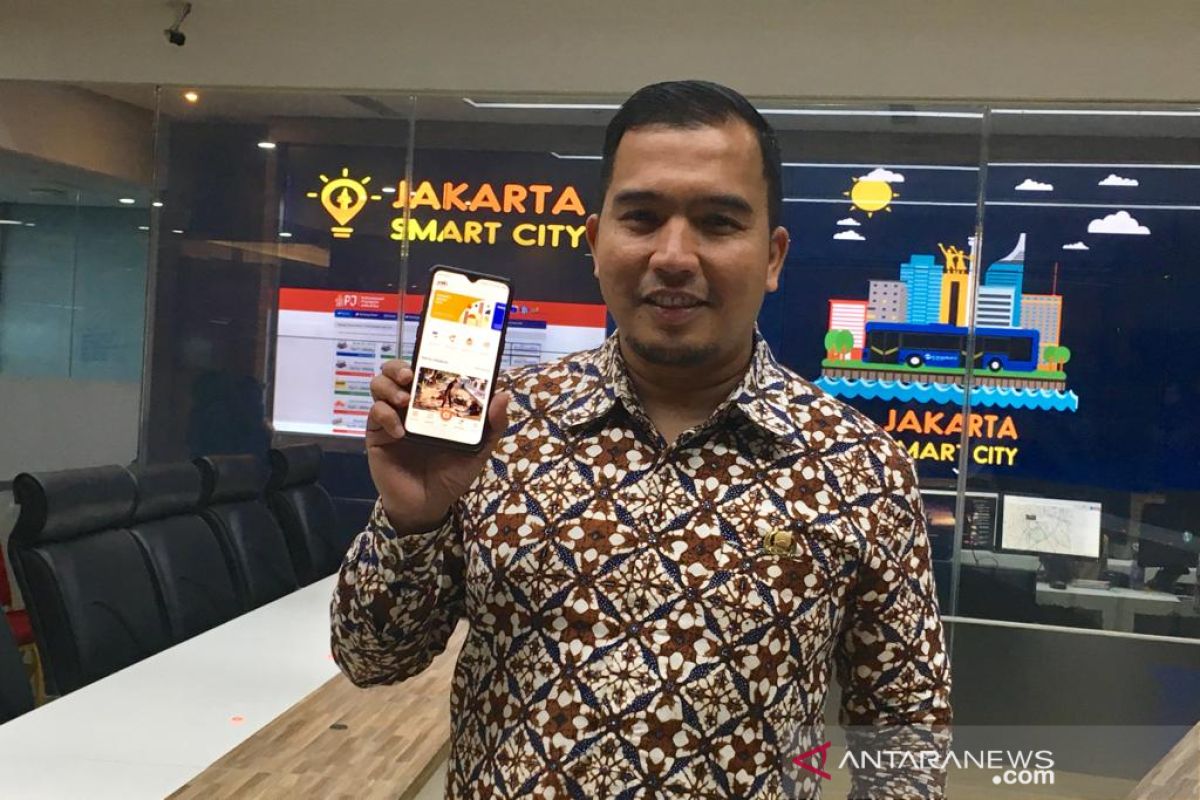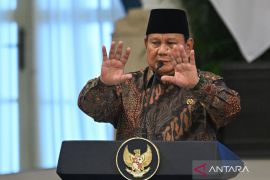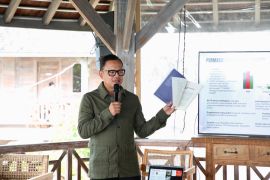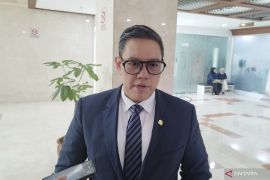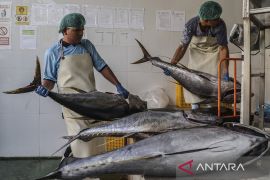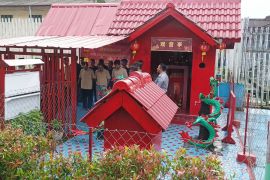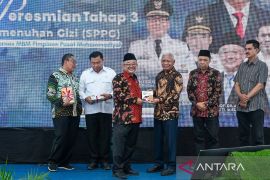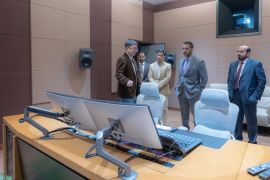"Technology, internet, sophisticated, all matters will be completely simple and fast," a person stated.
Another individual opined that it is "information and technology utilization over public sectors, such as in governance, people, and transportation," while the other simplified it as "the city integrated with many sophisticated technologies."
Yudhistira Nugraha, the one leading the implementation unit of JSC on behalf of the provincial government, expounded the concept of Jakarta 4.0 while concurrently emphasizing that technologies were viewed as the tools.
The quintessential thought of JSC currently is Jakarta 4.0 encompassing role-sharing between the government, as the collaborator, and the involved people, as the co-creators.
Prior to the "futuristic city" that pursued, Jakarta has passed sequence-to-sequence models of city development: city 1.0 when the government and citizens each have their respective roles as the administrator and resident, city 2.0 as the service provider-consumer, and city 3.0 as the facilitator-participant.
Back in 2015, under the administration of Basuki Tjahaja Purnama, Jakarta was initiating to become city 4.0, started by its mechanism to file a complaint through smartphone application Qlue developed by a start-up business company.
As the technological and public requirements evolve, Jakarta seems to continue to grow in the direction of the smart city concept. At least three platforms that have been utilized are Qlue, CROP, and the latest one, CRM.
"The process is going forward, and we are now developing the tools, from the very start as a "digital window", command center, and complaint application into one big platform of Citizen Relations Management (CRM)," Nugraha noted.
Furthermore, JSC has been started to introduce its one-stop-services mobile application named JAKI (Jakarta Kini, means Now Jakarta) that offers Jakarta’s news, complaint channel, and pollution information and is targeted to be developed as the super-app in the near future to accommodate the requirements of all people.
However, Nugraha has reiterated that the utilization of technology should not be viewed as Jakarta’s goal. Nonetheless, it is likely to be "technology innovations to provide solution for the city's problems."
Problem-solving is then believed to lead Jakarta to its two chief goals of positive economic growth that is aligned with improving the quality of life of the citizens, which characterize the familiar vision of incumbent governor Anies Baswedan: a developed city towards happy citizens.
Under a larger framework, Jakarta is among the two other smart cities in Indonesia: Makassar, South Sulawesi, at the city level, and Banyuwangi, East Java, at the district level.
Concurrently, it is one of the 26 pilot cities of ASEAN Smart Cities Network (ASCN) across the region initiated by Singapore and established at the 32nd ASEAN Summit on April 2018, while its framework was adopted at the next high-level summit on November 2018.
Cited from the ASEAN Secretariat official site at asean.org, the ASCN was conducted following the current similar situation of 10 member countries over rapid urbanization that had led to some main problems, such as “congestion, strained infrastructure, pollution, lack of affordable housing, and socio-economic inequality.”
The regional network here is expected to share the best practices from every single pilot city since there appears to be no way to define “smart” of those cities in a unified manner since smart city development, in practice, should be in line with the city’s uniqueness and be based on its context.
Moreover, it was certain that the networking connection “aims to facilitate cooperation on the development of smart cities, catalyze bankable projects with the private sector, and secure funding and support from ASEAN’s external partners,” according to the ASEAN Secretariat.
Specifically for Jakarta, the partners are more likely start-up companies that are settled in order to create a comprehensive and sustainable ecosystem, not partially based on projects. Related news: Kalla bestows Smart City Awards
Related news: Yogyakarta designated as Asean city of culture
“A start-up company will play its role as the engine to provide services for Jakartans,” Nugraha affirmed.
As interpreted by JSC, building a smart city ecosystem, aims to fulfill main principles including mobile first, data driven, and collaboration. The first area of focus is working on cloud-based infrastructure to ensure it is safe and secure.
The people, constituting citizens, media, communities, and others, are the co-creators of this ecosystem, and further utilization of technology is necessary to solve problems and be suited to the people’s needs.
JSC has chosen “open data” to connect the dots of what people actually require to what the engines (start-up companies) and government need to provide in collaborative ways.
It could be the very simple premise that Jakartans need to know routes and schedule of the most common transportation mode they use daily, TransJakarta bus, to ease their mobility in an efficient and effective manner.
“We are now facilitating API, Application Programming Interface, where we open public data, as for instance, related with traffic to the start-up companies, trigger them to create applications that will help solve the case. I can mention one of them is Trafi,” Nugraha pointed out.
With data feeds on the TransJakarta buses’ positioning through sensors, Trafi, as a mobile application, offers a real-time schedule of the buses serving on all routes across Jakarta, thereby facilitating people to monitor the buses they are looking to board, right in their hands.
At the end, the concept of JSC focuses on digital government, digital economy, and digital society. It needs to be amply highlighted that technology is merely the tool while the people are the main actors of the concept.
Hence, when it came to the "Jakarta Smart City" question, Nugraha responded, “Jakartans’ happiness.”
Related news: Banyuwangi included in ASEAN smart cities network
Related news: Indonesia expands smart city network to ASEAN
Editor: Gusti Nur Cahya Aryani
Copyright © ANTARA 2019
